Educating Bartenders Worldwide.
By Beverage Trade Network
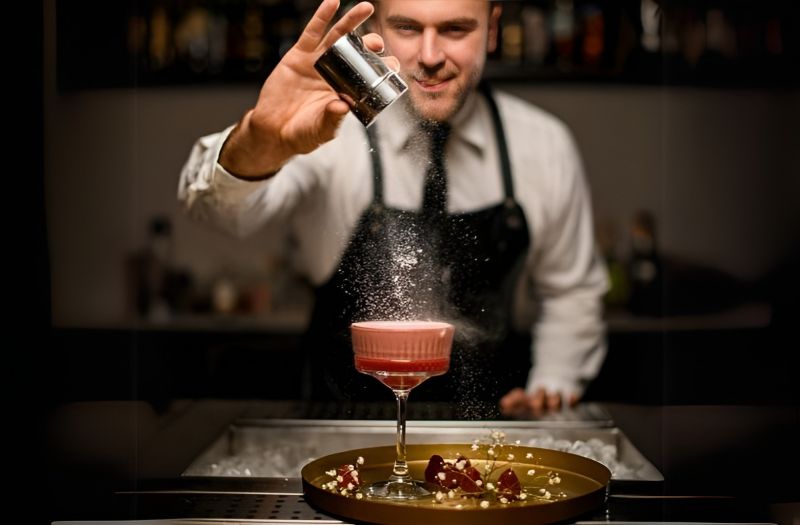
The bar business is growing in the US and worldwide. Statista says, “Although not yet reaching pre-pandemic sales of 2019, sales in 2021 totalled 247.3 billion U.S. dollars. During that same year, the number of businesses in the bar and nightclub sector in the U.S. was roughly 67 thousand.” Other estimates show a 2.2% annual growth of US bars and clubs in 2022-2026.” The sector is most likely to experience steady growth for the next five years.
A caveat exists, however.
It is a highly competitive industry and a costly investment. A major component of that is labor costs, especially direct labor costs (which include regular wages, overtime hours, worker's insurance, health insurance, and social security contributions). As one expert has pointed out, “In the hospitality industry, labor costs as a percentage of total expenses tend to be significantly higher than in many other industries. The reason is simple: hospitality often requires a higher level of staffing to serve guests.”
So if you have a bar, you must have staff, including bartenders and service staff. In the competitive world of hospitality, exceptional service is no longer a luxury—it’s a necessity. A well-trained staff can make or break a bar’s reputation. While ambiance, drinks, and location are critical factors, consistent, high-quality service is the true differentiator. To see the greatest returns from the investment in labor, therefore, requires proper staff training. So, how do you roll out a successful bar staff training program and what should it entail?
A comprehensive bar staff training program must play a major role in your bar busienss strategy.

Source: Diageo
Training goes far beyond teaching your staff how to make a cocktail. It encompasses everything from customer interaction to upselling techniques, and it's an ongoing process. Rolling out an effective training program requires careful planning, but the rewards—improved efficiency, higher sales, and better customer experiences—make the effort worthwhile.
Every bar is different, and your training program should reflect your establishment’s unique style and clientele. Whether you run a high-volume cocktail bar, a neighborhood pub, or a wine-focused venue, the first step is defining the skills and knowledge your staff need.
Start by identifying your bar’s key focus areas. For example, if you specialize in craft cocktails, your training should emphasize mixology techniques and knowledge of spirits. For wine bars, wine education is paramount. In each case, the training plan should focus on the following elements:
Beverage knowledge: Teach the history, production, and tasting notes of the beverages on your menu. Every staff member should understand the basics of spirits, beer, and wine, as well as non-alcoholic options. This includes knowing how to mix the classic cocktails, something many younger bartenders forget. Corey Hines at Provi says, “Arguably the most critical part of training revolves around house recipes for both classic and signature cocktails. Consider providing a bar training manual as a reference during these sessions. Delve into the specifics of each cocktail, covering the ingredients used and the rationale behind each choice. Offer a brief historical perspective for added context.”
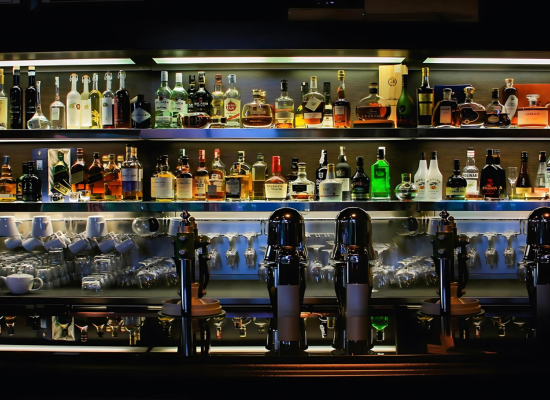
Source: Unsplash
Practical skills: This covers everything from shaking and stirring techniques to handling bar tools and presenting drinks with flair.
Customer service: Train staff on how to engage with guests, make recommendations, and handle complaints professionally.
Sales and upselling: Your staff should be confident in suggesting premium products or add-ons to boost sales without appearing pushy.
A solid training program balances theoretical learning with practical experience. In-depth knowledge of products—such as the differences between whiskey and bourbon, or the history behind certain cocktails—will set your bar apart. However, theory needs to be paired with hands-on training to reinforce that knowledge in action.
For new hires, consider starting with classroom-style sessions or e-learning modules. Diageo Bar Academy, for instance, offers free online resources to cover essential principles like cocktail building, flavor balancing, and understanding spirits. Other similar free resources include the Cocktail Academy. These modules are designed to provide a knowledge base before moving on to practical tasks.
From there, it’s essential to create opportunities for bartenders to practice and refine their skills. Organize role-playing sessions where team members can simulate busy service scenarios, allowing them to practice under pressure. Experienced staff can offer guidance and feedback to newer team members, helping them transition smoothly into real-world service. Among the on-the job training that Diageo recommends are:
Shadowing and Observation - New employees shadow experienced staff as they implement their duties to observe techniques, customer interactions, and overall operations to understand role requirements. This can include more intensive apprenticeships where new team members work closely with more experienced staff to guide them through the expected behaviors and skills.
Task rotation - Staff spend time doing different roles like barback or server and learn their associated tasks, skills, and responsibilities. This contributes to team building.
Role Playing - Use simulations and role-playing focusing on service rather than practical skills and training staff in problem-solving, communication skills and team-wide responses to emergencies.
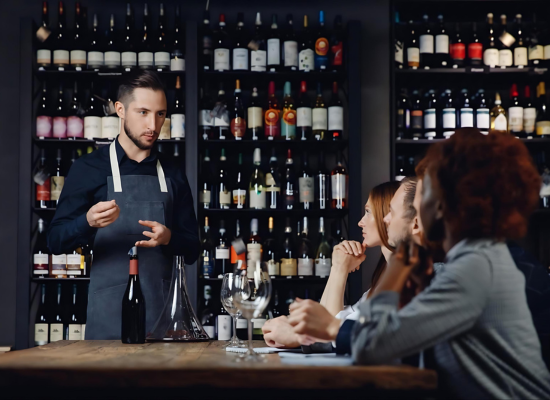
Source: Shutterstock
At the core of any bar staff training program is beverage education. Whether your staff are pouring pints, mixing cocktails, or recommending wine pairings, a deep understanding of your product range is non-negotiable.
Focus on the following key areas:
Spirits: Every bartender should know the basics of spirits like whiskey, vodka, gin, rum, tequila, and brandy. Training should cover the production process, flavor profiles, and popular cocktails that feature these spirits. A well-rounded bartender should be able to recommend top-shelf options or suggest alternatives based on a guest’s preferences. This too involves keeping tabs on award-winning spirits, like those receiving gold medals at competitions like the Bartender Spirits Awards and the London Spirits Competition.
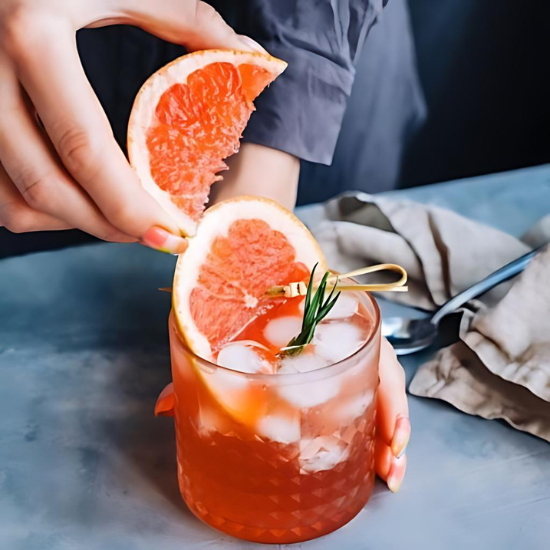
Source: Diageo
Beer: With craft beer continuing to rise in popularity, bartenders need to understand different styles, brewing techniques, and flavor characteristics. Offer guided tastings or invite local brewers to share insights and deepen your team’s appreciation for beer.
Wine: Wine education is critical, particularly in establishments with extensive wine lists. Train your staff on grape varieties, regions, and food pairings. Offering training in wine service—how to properly open, pour, and store wine—is also essential for providing an elevated guest experience. Staff must also know the best options available, such as the winners of the most recent Sommeliers Choice Awards.
Non-alcoholic beverages: With the rise of the sober-curious movement, bars are seeing increased demand for non-alcoholic drinks. Bartenders should be well-versed in crafting sophisticated mocktails and recommending alcohol-free alternatives.
Exceptional service is what turns a one-time visitor into a repeat customer. But it’s not just about being polite—great bartenders know how to read the room, anticipate guest needs, and enhance the overall experience.
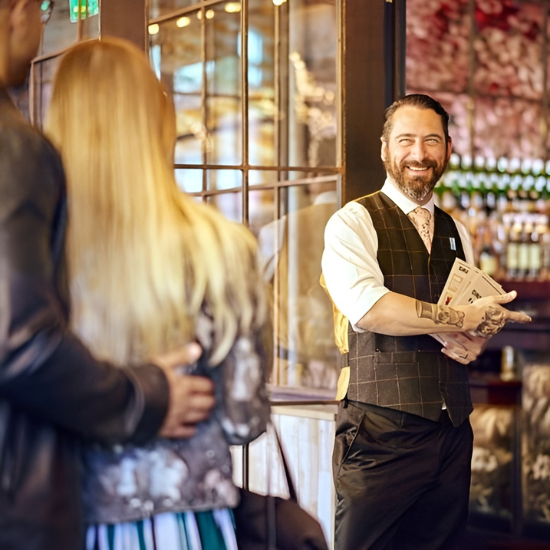
Source: Diageo
Train your staff regarding:
Engagement: Bartenders are the face of your bar, and how they interact with guests is crucial. Staff should be able to initiate conversations, ask about preferences, and recommend drinks that match guest tastes.
Upselling: A key part of service training is teaching bartenders how to upsell in a natural and non-intrusive way. For example, suggesting a premium spirit for a classic cocktail or offering a higher-end wine by the glass can increase sales while still providing value to guests. Ellie Swain of Lingio says, “Upselling not only benefits your business but also enhances the customer experience. Train your staff on suggestive selling techniques that are both persuasive and genuine. Encourage them to recommend complementary food and beverage pairings, highlight specials, and showcase unique offerings.” Your staff should feel empowered to suggest upgrades or additions that align with customer preferences and elevate the guest experience.
The hospitality industry is constantly evolving, and so should your staff’s training. The best training programs are not static—they grow alongside industry trends and guest expectations. To keep your bar on the cutting edge, implement ongoing training opportunities that keep your team engaged and informed.
Monthly training sessions: Whether you introduce new seasonal cocktails or bring in experts to discuss trends like low-ABV spirits, these sessions provide fresh content and ensure your staff remain at the top of their game.
Supplier- and distributor-led training: Collaborate with your suppliers, producers, and distributors to organize tasting events or hands-on workshops. They are often eager to offer training on their products, which can be a cost-effective way to provide in-depth education.
Advanced certifications: Encourage your team to pursue professional certifications such as WSET, Cicerone, or Diageo’s Bar Academy courses. Supporting staff in gaining these credentials not only improves their skills but also fosters loyalty. In the wine sphere, many regional organizations offer free online courses, like the Rioja Wine Academy, the Champagne MOOC, or the School of Port. The book Leary’s Global Wineology provides a guide to a wealth of wine education resources.
[[relatedPurchasesItems-31]]
The fast-paced nature of bar work means that finding time for training can be a challenge. Thankfully, technology can streamline the process and make it easier to scale your training program. Digital tools allow staff to learn at their own pace, ensuring consistency across shifts and reducing the time required for in-person instruction.
Platforms like Diageo Bar Academy’s online training modules or, for specific drinks, Cocktail College, offer a wealth of knowledge in bite-sized, easy-to-digest lessons. You can complement these with your own custom-made videos, quizzes, or apps that cover house-specific policies, signature cocktails, and service standards.
“From starting up in the industry to those running or managing a bar venue, find unlimited resources to support and provide inspiration in your role. For those starting out in the industry, get access to unlimited resources to help you master the basics and build confidence,” explains Diageo. Online learning tools can be especially valuable for bars with high staff turnover, as they allow new hires to get up to speed quickly.
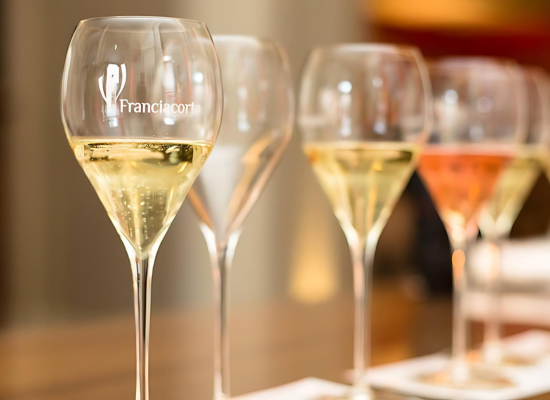
Source: Franciacorta
Rolling out a structured, well-thought-out training program is key to ensuring the long-term success of your bar. A comprehensive program doesn’t just benefit your employees—it results in better guest experiences, increased sales, higher staff retention, and therefore increased profits.
By investing in thorough beverage education, practical skills training, and ongoing development opportunities, you’ll build a team of knowledgeable and motivated bartenders who are proud to work at your establishment. And as educator Hannah Lanfear emphasizes, “cocktail industry-specific” training will “educate on every aspect of running a successful bar: creating, leading, and coaching a diverse team; mastering the principles of profitability; practical bar operations and empathetic hospitality; authoring and marketing your drinks menu; and, crucially, the ongoing work of personal development to provide the positivity, support, and stability that any bar team needs.”
Header Image Source: Diageo